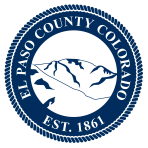Project Review Comments
- File Number
- CP217
- Project Name
- Crystal Park Site S-124(R) - Site Plan
- Applicant
-
Palace Homes Inc
Gordon Stegner ( Gordon@palacehomesinc.com )
(719) 491-9635 Gordon Stegner ( Gordon@palacehomesinc.com )
(719) 491-9635 - File Number
- CP217
- Project Manager
- Ryan Howser
- Status
- Closed
- Created
- 11/2/2020 2:27:42 PM
View: Project Documents
| Agency | Review # | Comment | ||
|---|---|---|---|---|
|
PCD Project Manager
10/6/2021 4:54:41 PM |
3 |
Planning Division has completed its review and has no further comments at this time. It is recommended to include CGS recommendations on the site plan. Please include notes regarding the following: 1. Rocks and boulders that are disturbed or become unstable during construction are properly removed. 2. Geoquest’s recommendations are incorporated in the project design and construction. 3. Foundation excavations are inspected for evidence of fractures, discontinuities, and weathered zones during the open hole observations. 3. The geologic hazard note on the site plan is updated to include the revised geologic hazard reports. |
10/6/2021 4:54:41 PM | |
|
Colorado Geological Survey
9/29/2021 1:29:03 PM |
2 |
The applicant proposes a single-family residence at 5291 Neeper Valley Road in the Crystal Park development. The resubmittal documents included a Site Plan (Haddon Architecture, April 14, 2021) and Geologic Hazards Report (Geoquest, LLC, stamped July 7, 2021). The site plan and Geoquest’s geologic hazard report generally address our previous concerns. CGS has no objection to the approval of the proposed residence. However, we offer the following comments and recommendations. Rockfall: As noted on the site plan (Haddon Architecture, April 14, 2021), a proposed rock swale will be constructed upslope of the building footprint. Geoquest states on page 2 of their report, “With proper slope and reinforcing, this swale is capable of halting boulder of 18” or smaller than (sic) may slide down from above.” Also, Geoquest states, “Based on our site evaluation, boulder large (sic) than this size are unlikely to be displaced.” Although Geoquest did not provide their specific rockfall evaluation in the report, CGS generally agrees with their assessment. CGS recommends that rocks and boulders that are disturbed or become unstable during construction are properly removed. Steep Slopes and Construction-Related Slope Instability: Geoquest performed a slope stability analysis for the current state, construction phase, and final state. CGS agrees with Geoquest on page 3, “Due to the shallow, unstable slopes, we recommend slopes not exceed 2:1 (horizontal:vertical). Steeper slopes than this are subject to localized slope failure.” CGS also agrees with Geoquest on page 3, “Proposed retaining walls should be designed by a geotechnical engineer.” In addition, retaining walls, building foundations, and upslope foundation walls that will function as retaining walls must include adequate behind-wall drainage. As noted by Geoquest (page 3), “Foundation walls should be designed for an increased lateral earth pressure for the potential of increased pressure caused by creep.” CGS agrees with Geoquest and with their recommendation, “the foundation design engineer incorporate tie-beams between the uphill and downhill walls to resist potential downslope forces.” Geoquest’s recommendations for proper surface grading and erosion (page 3) should be incorporated in the project design and construction. Geotechnical Considerations: CGS agrees with Geoquest on page 3 of their soils report, “Perimeter drains are required around all walls of the living area portion of the structure that are below finished grade including all common wall(s) adjacent to the basement.” Also, on page 4, “an Open Hole Observation must be performed on each individual structure prior to placement of concrete, and preferably prior to the placement of forms in the excavated area.” Block slope failures in the bedrock can occur along concealed fractures and weathered zones beneath the planned building site. CGS recommends Geoquest or another qualified geotechnical engineer carefully inspect the foundation excavation for evidence of fractures, discontinuities, and weathered zones during the open hole observations. Should observed conditions indicate differences from those assumed in the foundation design, the structural engineer should re-evaluate the design. Geologic Hazard Disclosure Statement: CGS recommends updating the geologic hazard note on the site plan to include the revised geologic hazard reports. In summary, we have no objection to approval provided: 1. Rocks and boulders that are disturbed or become unstable during construction are properly removed. 2. Geoquest’s recommendations are incorporated in the project design and construction. 3. Foundation excavations are inspected for evidence of fractures, discontinuities, and weathered zones during the open hole observations. 3. The geologic hazard note on the site plan is updated to include the revised geologic hazard reports. Submitted 9/29/2021 by Amy Crandall, Engineering Geologist, Colorado Geological Survey (303-384-2632 or acrandall@mines.edu) |
9/29/2021 1:29:03 PM | |
|
PCD Project Manager
9/21/2021 12:22:17 PM |
2 | Per previous comment, an amended well permit will be required to allow for joint use of well for two single family dwellings, sites 121 and 124. Please submit amended well permit to allow for joint use or provide a new well permit for site 124. | 9/21/2021 12:22:17 PM | |
| View |
El Paso County Conservation Dist
6/16/2021 9:21:49 AM |
1 | 6/16/2021 9:21:49 AM | |
| View |
Colorado Geological Survey
6/4/2021 11:13:46 AM |
1 | 6/4/2021 11:13:46 AM | |
| View |
PCD Project Manager
5/26/2021 5:13:39 PM |
1 | Please see planning comments to well permits. | 5/26/2021 5:13:39 PM |
| View |
PCD Project Manager
5/26/2021 5:13:17 PM |
1 | Please see planning comments to BESQCP. | 5/26/2021 5:13:17 PM |
| View |
PCD Project Manager
5/26/2021 5:12:54 PM |
1 | Please see planning comments to site plan drawing. | 5/26/2021 5:12:54 PM |
| View |
EPC Health Department
5/17/2021 8:34:29 PM |
1 | 5/17/2021 8:34:29 PM |
 EDARP
EDARP